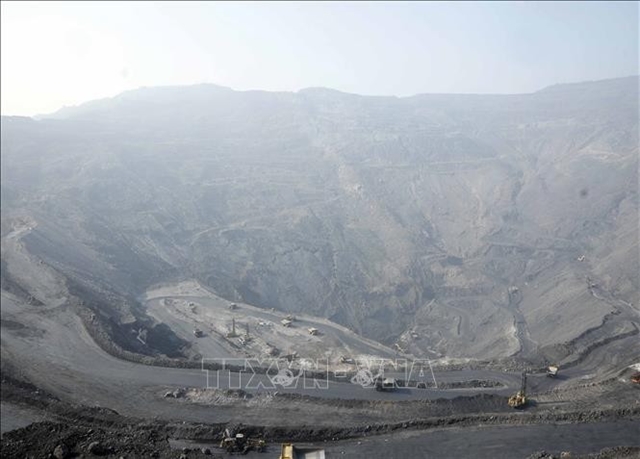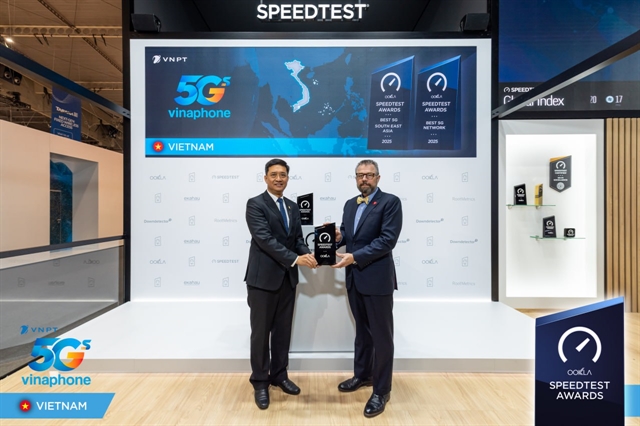- 92% of Singapore CEOs anticipate growth for their businesses, a significant increase from 76% in 2022
- Over half of Singapore CEOs or 52% are shifting capital investments towards skilling their workforce for an AI-driven future
- Majority of CEOs see their ESG investments as having the greatest impact on their capital allocation, partnerships, alliances, and M&A strategy
SINGAPORE -
Media OutReach - 5 October 2023 - The KPMG 2023 CEO Outlook offers an in-depth examination of the viewpoints of more than 1,300 CEOs from some of the world's leading companies. Despite the current geopolitical and economic uncertainties and escalating cost-of-living pressures, a staggering 92% of Singapore CEOs forecast growth for their businesses. This figure significantly surpasses the 77% of global CEOs who share this positive outlook. Notably, this optimism has seen a year-on-year increase among Singapore CEOs, rising 16% from 76% in 2022.
Ms Lee Sze Yeng, Managing Partner at KPMG in Singapore, offered an analysis of the prevailing business environment: "Singapore CEOs are showcasing exceptional resilience and adaptability in the face of complex geopolitical and economic landscapes. They are strategically preparing their organisations for a future steered by generative AI and environmental, social and governance (ESG) initiatives, with human expertise as the foundational pillar. A significant shift is evident, with 52% of Singapore's CEOs transitioning from a focus on technology acquisition to prioritising the upskilling of their workforce in AI and ESG.
"As we steer towards 2023, three strategic priorities have surfaced for Singapore CEOs: improving the customer experience (28%), catalysing inorganic growth through mergers and acquisitions as well as expansions (24%), and stimulating organic growth with innovation at its nucleus (20%). While the global emphasis among CEOs remains on digitalisation and talent retention, these aspects have seen a reduction in priority among Singaporean leaders since 2022. However, it's important to highlight that a substantial 69% of CEOs worldwide are leveraging generative AI, underscoring its potential as a key driver for competitive advantage and future innovation."
Globally, geopolitics and broader political uncertainty have become the greatest risks to business growth for senior executives. These concerns were not in the top five in the 2022 survey. Singapore CEOs also expressed concerns about ongoing economic uncertainty, with 68% noting that rising interest rates and tightening monetary policies could prolong any potential or current recession. More than three in four CEOs globally (77%) also point to cost-of-living pressures impacting their profitability.
Amid market instability, appetite for mergers and acquisitions (M&As) among Singapore CEOs has dropped slightly to 60% in 2023, as compared to 88% in 2022. This is compared to global CEOs' M&A appetite in 2023 which is at 88%.
As depicted in Figure 1, Singapore CEOs identify operational risk and emerging/disruptive technology (each at 16%) as the principal threats to growth, aligning with their global counterparts' concerns. However, they remain undeterred. Instead, they approach this dynamic and demanding environment with resilience, adopting a purpose-driven, proactive strategy focused on technology, ESG, and talent management. Over half of Singapore's CEOs (56%) have already adjusted their growth plans to tackle these interconnected challenges, and an additional 40% are planning to follow suit.
Figure 1: Top threats to growth for CEOs in Singapore and globally Singapore
| Global
|
Operational risk (16%)
| Political uncertainty (18%)
|
Emerging/ disruptive technology (16%)
| Emerging/ disruptive technology (12%)
|
Supply chain risk (16%)
| Operational risk (12%)
|
Interest rate risk (12%)
| Regulatory risk (9%)
|
Political uncertainty (8%)
| Environmental/ climate change risk (9%)
|
Mr Bill Thomas, Global Chairman & CEO, KPMG, said: "Business leaders are facing challenges and obstacles to growth on multiple fronts – from geopolitical uncertainty and politicisation to increased stakeholder expectations in the ESG space and the adoption of generative AI. What I find reassuring is that, despite the many macroeconomic and geopolitical challenges right now, mid-term global confidence remains relatively robust. There's a consensus that we can, in time, return to a path of international, sustainable long-term growth. For CEOs – the opportunity to drive a return to a more equitable, successful planet is right in front of us. The key to success will be an unrelenting focus on long-term, strategic planning and commitment to avoid the danger of short-term, reactive leadership, which is always a threat during a period of deep uncertainty."
PRIORITIES AND CONCERNS FOR CEOS Ethical challenges surround generative AI but are not stifling investment Like their global peers, most CEOs in Singapore cite ethical challenges (64%) as their top concern when implementing generative AI in their organisations. However, majority of CEOs globally (69%) continue to place generative AI as their top investment priority in the medium term. This comes amid a growing awareness of the potential for AI to transform businesses. All the CEOs surveyed in Singapore agree that disruptive technology, which also includes machine learning, blockchain and robotics, could negatively impact their organisation's prosperity over the next three years. About half (48%) of Singapore CEOs say they expect to see a return on their investments in three to five years.
With generative AI set to extend its reach across all businesses and industries, CEOs here are recognising its potential in increasing profitability (28%), innovation (20%) and job creation (16%). For them to be fully on board, however, 68% of Singapore CEOs believe that there is a need to address the lack of current regulations and direction for generative AI in their industry, which has been a barrier to their success. Similar to CEOs in the region and other parts of the world, about three in four Singapore CEOs (76%) agree that the degree of regulations for generative AI should mirror that for climate commitments.
While 64% of Singapore CEOs believe that generative AI could aid their cybersecurity strategy, they are also cognisant that it may bring new dangers by providing new attack strategies for adversaries. However, CEOs' confidence in guarding against future cyber attacks has seen a sharp uptick this year, with 68% of CEOs here now saying they are 'very prepared' as compared with just 20% in 2022.
ESG still a top priority, as CEOs focus investments on governance and best practices Despite the increasingly polarising discourse surrounding ESG, CEOs in Singapore and globally are continuing efforts to embed ESG into their businesses. They are taking a more outcomes-based approach to their efforts, while remaining pragmatic about the external environment.
Globally, over a third of CEOs (36%) have changed the language they use to refer to ESG both internally and externally, signalling a mindset shift among CEOs as they become more specific about each aspect of the acronym and prioritise where their investments can have the most impact. About one in two Singapore CEOs (52%) have fully embedded ESG into their business to create value.
In a period of uncertainty, majority of CEOs in Singapore (36%) and Asia Pacific (40%) are choosing to focus their ESG investments on governance and transparency protocols, such as best practice reporting, with less attention being paid to social and community programmes. This comes even as 96% of Singapore CEOs say that they have responsibility to drive greater social mobility, far higher than the 80% in 2022.
About three-quarters of Singapore CEOs (72%) anticipate that it will take three to seven years for their ESG investments to pay off, with the greatest impact likely on their capital allocation, partnerships, alliances and M&A strategy (24%) and talent attraction for the next generation (24%).
Among the greatest barriers facing Singapore CEOs looking to achieve net-zero or similar climate ambitions is the lack of internal governance and controls to operationalise these goals. Two in five Singapore CEOs (40%) rank this as their top challenge, a marked shift from the previous year where the lack of appropriate technology solutions was seen as the biggest obstacle. Amid rising stakeholder expectations, only 8% of CEOs in Singapore say that they currently have the capability and capacity to meet new reporting standards, compared with 50% in Asia Pacific and 74% globally – showing that there is still some progress to be made. One of the biggest downsides in failing to meet the ESG expectations of stakeholders continues to be the higher cost of and difficulty in raising finance (32%).
CEOs position for growth through building workforce skills and capabilities As Singapore CEOs navigate uncertainty with their growth and transformation objectives in mind, more are choosing to prioritise their capital investments into developing their workforce skills and capabilities. Slightly more than half (52%) now have this as their priority, a shift from the last year where majority (56%) focused on buying new technology. Upskilling and reskilling their current workforce have become a strategic priority, seeing as about a third of Singapore CEOs (32%) anticipate that their headcount will remain unchanged over the next three years. Another third (36%) believe that their headcount could fall by up to 5%.
The debate over hybrid working also continues to divide senior executives around the world. In Singapore, slightly less than half of CEOs (48%) predict a full return to in-office work within the next three years. This contrasts with 64% of CEOs globally who remain steadfast in their support of pre-pandemic ways of working. Correspondingly, only about a third of Singapore CEOs (34%) say they are likely to link financial reward and promotion opportunities with employees who make an effort return to the office, far lower than the 88% globally.
Hashtag: #KPMG
The issuer is solely responsible for the content of this announcement.
About KPMG CEO Outlook
The 9th edition of the KPMG CEO Outlook, conducted with 1,325 CEOs between 15 August and 15 September 2023, provides unique insight into the mindset, strategies and planning tactics of CEOs. All respondents have annual revenues over US$500M and a third of the companies surveyed have more than US$10B in annual revenue. The survey included CEOs from 11 key markets (Australia, Canada, China, France, Germany, India, Italy, Japan, Spain, UK and US) and 11 key industry sectors (asset management, automotive, banking, consumer and retail, energy, infrastructure, insurance, life sciences, manufacturing, technology, and telecommunications). NOTE: some figures may not add up to 100 % due to rounding.
About KPMG in Singapore
KPMG in Singapore is part of a global organization of independent professional services firms providing Audit, Tax and Advisory services. We operate in 143 countries and territories with more than 265,000 partners and employees working in member firms around the world. Each KPMG firm is a legally distinct and separate entity and describes itself as such. KPMG International Limited is a private English company limited by guarantee. KPMG International Limited and its related entities do not provide services to clients.
For more information, visit
kpmg.com.sg
LinkedIn:
linkedin.com/company/kpmg-singapore

.png) Media-OutReach Newswire
Media-OutReach Newswire






